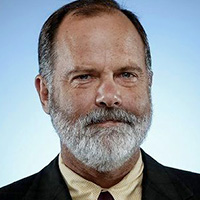CLIMATE CHANGE IS REAL. The Earth is getting warmer, with profound implications. The cause is humanity. In order to sustain anything like our current way of life, humans must respond forcefully — as individuals and as part of a larger social and economic revolution.
Those are the sobering verdicts of this magazine’s featured work. As Gov. Jerry Brown notes here, confronting the reality of climate change requires nothing less than contemplating the possibility of human extinction. And addressing this crisis is made even more complicated by its incrementalism. Because climate change is gradual and its most profound effects won’t be upon us for some time, the temptation to delay, especially in the face of so many other pressing problems, is overwhelming.
How, then, should policymakers raise awareness of the issue and implement ideas for change? That is the fundamental question posed by the three pieces of research highlighted in this issue. Pricing seems one obvious solution: People waste less if it costs them more. The problem, as researchers Magali Delmas, Noah Goldstein and others have discovered, is that energy is so cheap for most Americans that even raising its price considerably may not much affect behavior. Instead, Delmas and others are experimenting with different cues — notes that compare a homeowner’s energy usage to that of neighbors or reminders of how much a consumer is contributing to environmental degradation. Not exactly shaming, but pointed comparisons that get more of a reaction than a few extra dollars on a monthly bill.
Similarly, J.R. DeShazo works closely with governments to assess ways to induce people at all income levels to switch to cleaner technologies, whether in their homes or the cars they drive. Some of that is monetary — tax rebates for electric cars to bring down their price, for instance — but it also involves thoughtful public investment. Free charging stations, to cite just one example, may be more important to some consumers than a low sticker price. DeShazo and his colleagues have compiled extensive research comparing those incentives and investments and offering guidance for officials contemplating what to do next.
And then there is the need, as is the case in almost all policy discussions, for clear and solid information. How can leaders reduce energy consumption without knowing who is using it and how it’s being wasted? That was the idea behind the Los Angeles County Energy Atlas, an interactive website that charts energy use and supplies policymakers with information they need to target excess consumption and encourage conservation. The Atlas already is up and running, and researchers eventually hope to expand it to the entire state.
As Mary Nichols notes in our profile, the world’s industrial model worked wonders for a while, but it’s fast approaching the end of its utility. To thrive, perhaps even to survive, humanity needs to change course, and soon. The changes required to prevail over a warming planet become more difficult as time goes by; small changes now could avert severe ones later.
If our grandchildren are to live lives comparable to our own, those changes need to begin now, guided by the ideas expressed in these pages.























